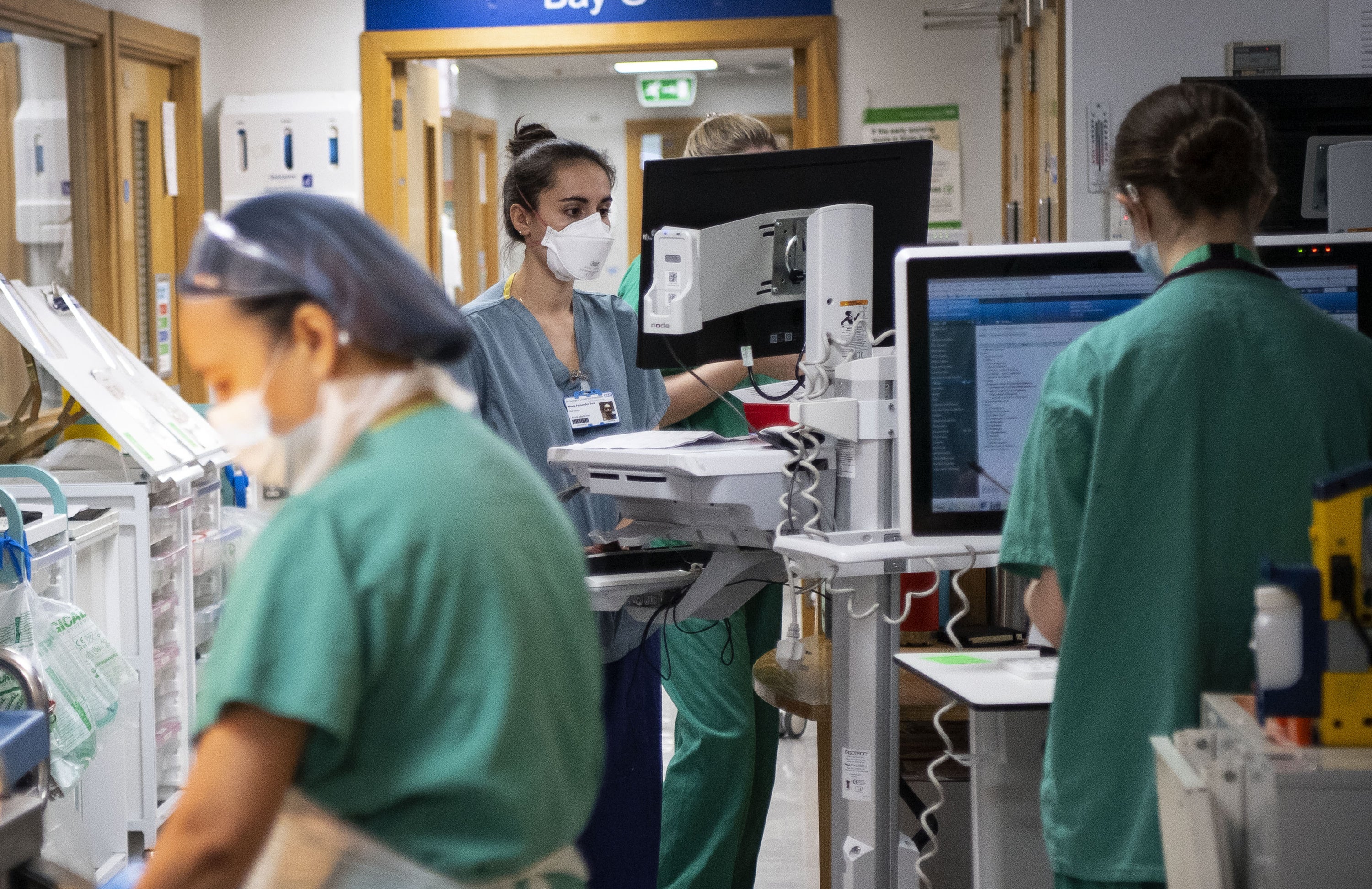Blood pressure checks in betting shops as a result of NHS shake-up
A total of 42 new integrated care systems come into force on Friday.

An NHS shake-up will see patients in some parts of England offered blood pressure checks in betting shops, while mental health staff could be put in GP surgeries to help children in need.
A total of 42 new integrated care systems (ICS) come into force on Friday, bringing together GPs and their teams, hospitals, care services and other local groups.
The aim is to improve care for people in each part of the country, including those with multiple conditions who access a range of health and care services.
Clinical commissioning groups (CCGs), which have had control of local budgets until now, have been abolished as part of the reforms.
Integrated care systems have the power to truly transform the way that we care for people up and down the country
Under the previous framework, competition between organisations was promoted but this has been scrapped in favour of more joined-up working.
Some regions have already rolled out new services under the changes, with a GP practice in Stockport going into betting shops to deliver blood pressure checks.
In Coventry and North Warwickshire, a local sports club is offering diabetes and obesity support, both through GP referrals but by also approaching people with the offer of access to a gym.
Dedicated mental health staff to help children and young people – known as wellbeing practitioners – have also been put in some GP practices to increase support and improve access to local mental health teams.
NHS England said GP teams can develop special interests and access training in specific areas such as eating disorders.
According to the body, the reforms will also save around £14 million a year by reducing the number of chief executives working in the NHS by almost 170.
Before, I didn't know who to call or speak to so I would call the GP or 999 if I was worried
Amanda Pritchard, NHS chief executive, said: “Integrated care systems have the power to truly transform the way that we care for people up and down the country – not only will the NHS provide care when someone is unwell or has an accident, but alongside our local government partners we must also now play an increasing key role in managing people’s health so that we can catch more killer conditions earlier and save lives.
“Local areas are already doing this by going out into communities to spot signs and symptoms earlier in places such as sports clubs and betting shops as well as ensuring people can access community support rather than using 999 or going to A&E.
“Through these schemes, we are already making a massive difference to people’s lives.
“The NHS will now build on this success and innovation and deliver care for patients that is fit for the future as well as saving taxpayers millions of pounds each year.”
Jane, who used to ring 999 or her GP every day in Bedfordshire, has benefited from the scheme with the help of somebody working locally in social prescribing who can refer her to a range of services and be a point of contact.
Jane said: “Before, I didn’t know who to call or speak to so I would call the GP or 999 if I was worried.
“Because Vicky came to see me, she was able to really see what my life was like and offered to help me.
When services act on the experiences of those they serve, it results in better care
“She worked with the council for repairs to my flat, she looked at my benefits and helped me to claim so I have been able to make more improvements to my home.
“I’m exercising now and going out socially which I didn’t do before, I have even made some new friends.
“Now I know who to call if I’m worried or I don’t understand something, working with this service via my GP has made my life easier, better and happier – I like me now.”
Saffron Cordery, interim chief executive of NHS Providers, said: “Amid the many challenges facing health services today, working more closely with partner services presents opportunities to deliver better, more joined-up care for patients.
“Joint working in systems will help the whole of the NHS to tackle inequalities and address deep-rooted disparities in people’s health and wellbeing across England.”
Louise Ansari, national director at Healthwatch England, said there was a “desire among the public to see services closer to where people live, making them more accessible and truly at the heart of communities”.
She added: “When services act on the experiences of those they serve, it results in better care.”